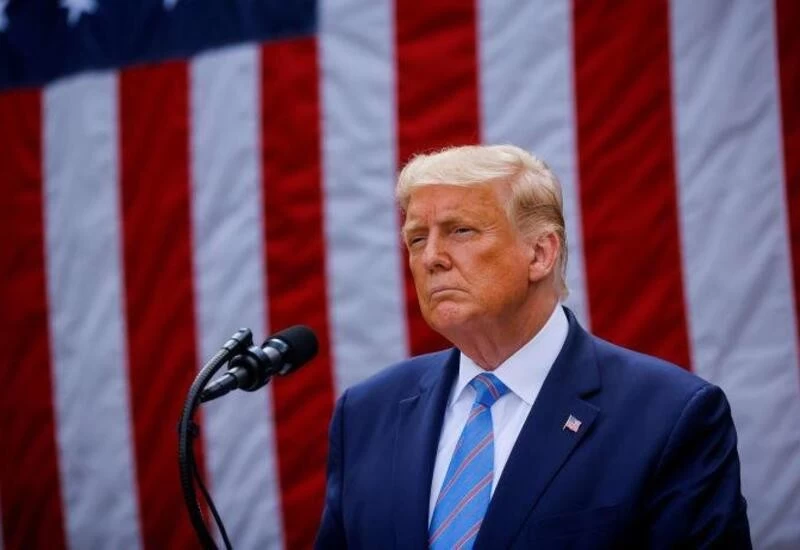San Francisco: A federal judge in San Francisco has blocked the Trump administration from enforcing its ban against many of the biggest U.S. companies bringing in foreign workers under H-1B and other employment-based visas.
The ruling applies to workers for companies represented by the plaintiffs in the suit: the National Association of Manufacturers, the U.S. Chamber of Commerce, the National Retail Federation and TechNet.
Together, the four organizations represent hundreds of thousands of companies, including major Silicon Valley technology employers, significant names in manufacturing and pharmaceuticals, and some small businesses.
The order, in effect until the end of the year, is national in scope, though it doesn’t apply to employers not represented by one of the four plaintiffs.
“We are competing with the rest of the world to find and develop top talent to support innovation in our industry,” said Linda Kelly, senior vice president and general counsel at the National Association of Manufacturers. “Today’s decision is a temporary win.”
John Baselice, executive director of Immigration Policy at the U.S. Chamber of Commerce, said the “ruling against the implementation of these sweeping restrictions on legal immigration is a great victory for American businesses and our nation’s economy.”
It isn’t clear how the judge’s order will be enforced, as it would require U.S. consular officers and immigration officials to discern which companies are represented by the plaintiffs. The State Department didn’t respond to a question about how it planned to enforce the judge’s decision.
The temporary ban, which Mr. Trump issued in June, bars foreigners on H-1B or other work visas from coming to the U.S. through the end of this year or longer, should the president extend it. Mr. Trump said he took the step to safeguard unemployed Americans, who could take jobs not filled by foreigners.
At the time, tech-industry officials and other business leaders warned the decision would cramp companies’ ability to recruit top talent to the U.S. and bar immigrants who fill unique skill sets or take jobs most Americans won’t perform. Colleges said it would discourage top students abroad from studying in the U.S.
The H-1B visa is an employment-based visa for highly skilled workers. The administration has argued that the coronavirus pandemic requires limits on immigration to prevent sick people from entering the country and to ensure that Americans get jobs first as the economy rebounds.
Mr. Trump likely exceeded his authority in issuing the ban, U.S. District Judge Jeffrey S. White of the Northern District of California wrote in his opinion.
“Congress’s delegation of authority in the immigration context…does not afford the president unbridled authority to set domestic policy regarding employment of nonimmigrant foreigners,” wrote Judge White, a George W. Bush appointee. “Such a finding would render the president’s Article II powers all but superfluous.”
The White House didn’t immediately reply to requests for comment. The Justice Department didn’t want to comment.
In addition to H-1B visas, the suit applied to H-2B visas for short-term seasonal workers in landscaping and other nonfarm jobs; J-1 visas for short-term workers including camp counselors and au pairs; and L-1 visas for internal company transfers.
The decision is particularly significant for prospective H-1B visa holders working at the impacted companies, as the government issues about 85,000 new ones on Oct. 1, the start of each fiscal year. Mr. Trump specifically extended the order past October to ensure these new visa holders wouldn’t be able to come and start new jobs in the U.S., his advisers said at the time.
The suit didn’t seek to block an earlier ban Mr. Trump announced in April, which bars family members of Americans and some work-based green-card holders from entering the U.S.
The ruling breaks with a judgment by U.S. District Judge Amit Mehta of the District of Columbia, who ruled in a parallel case that he didn’t have the power to enjoin the ban while litigation is under way.
In his ruling, issued Sept. 4, Judge Mehta, an Obama appointee, wrote he wasn’t convinced that Mr. Trump’s ban was unconstitutional. He pointed to a 2018 Supreme Court decision that Mr. Trump’s travel ban on seven Muslim-majority nations was allowed because the president has the power to block foreigners if they are “detrimental to the interests of the United States.”
“The wisdom of the president’s decision to address those changed circumstances by restricting the entry of certain classes of aliens is a policy decision the judiciary is not well equipped to evaluate,” Judge Mehta wrote.


